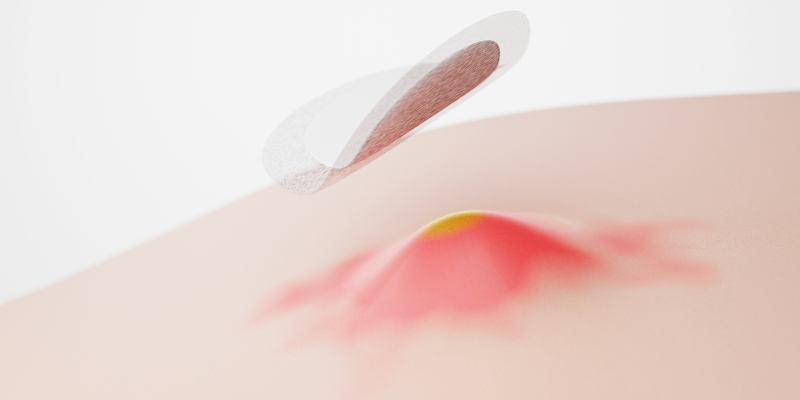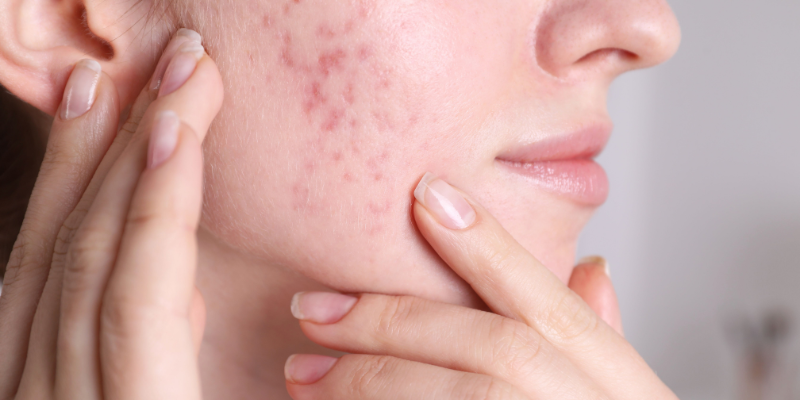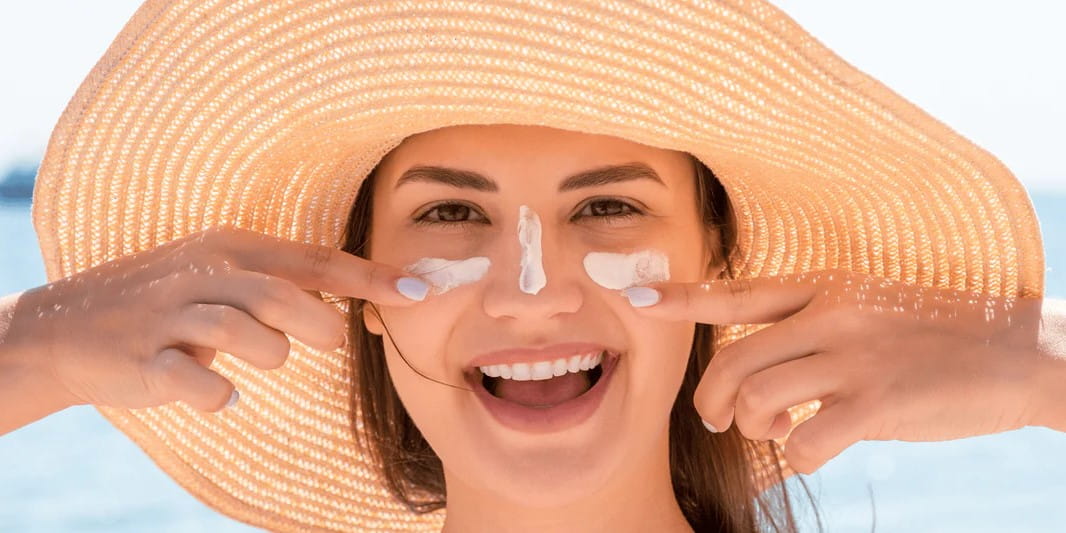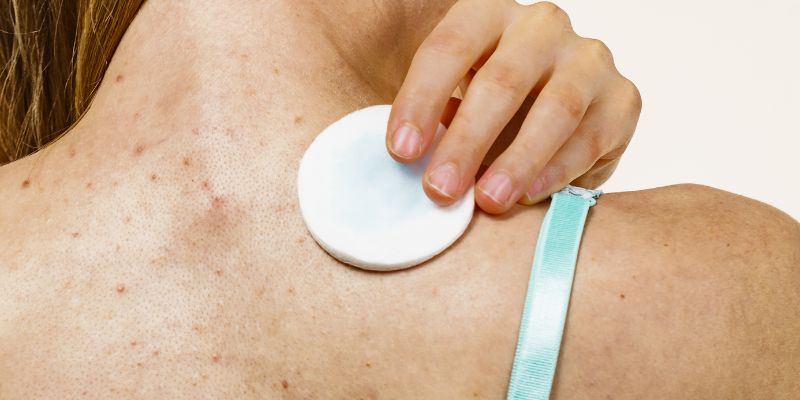Can Vicks Help Treat Acne?
Acne is one of the most common skin conditions affecting millions of people. It can vary from blackheads and whiteheads to severe cystic acne. Among the conventional treatments for acne, benzoyl peroxide, salicylic acid, and retinoid have been found effective. However, some unconventional therapies, such as Vicks Vapor, are also gaining popularity. Traditionally, Vicks is used to treat congestion and muscle aches, but it is said to work with acne. But do it? Let's analyze the ingredients and their effect to get insight into their ability as an acne treatment.
What is Vicks Vapor?
Vicks Vapor is an over-the-counter ointment to ease cough, congestion, and minor muscle aches. The three active ingredients of the drug are menthol, camphor, and eucalyptus oil. These ingredients create a cooling sensation that relieves pain. Menthol is a cold receptor stimulant, whereas camphor has mild anesthetic and anti-inflammatory properties. Eucalyptus oil has antimicrobial effects, which can control bacterial growth. Vicks also includes petroleum jelly, turpentine oil, and thyme, which are hydrating and soothing. Though a strictly respiratory medication, this concoction of ingredients led to the use of Vicks for off-label purposes and sometimes even acne.

Why do people use Vicks for acne?
The reason behind the utilization of Vicks Vapor for acne is due to the assumed benefits provided by its active and inactive ingredients. Now, let's explore each of them in further detail:
- Menthol and Camphor: Soothing Effects
Menthol and camphor are typically cooling. The components have a soothing effect on the skin, reducing the seriousness and inflammation of acne breakouts. This cooling can even soothe irritated skin, creating an illusion that the inflammation and redness around pimples have reduced.
- Eucalyptus Oil- Inhibitory Action
Eucalyptus oil is an antimicrobial. It can reduce Propionibacterium acnes, the bacteria that cause most spots. Eucalyptus oil may help reduce the number of new lesions by impairing bacterial growth, but this is by no means a replacement for benzoyl peroxide or even antibiotics.
- Petroleum Jelly: Moisturizing
It has an occlusive effect and locks in moisture, preventing the skin from drying out. Acne treatments generally dry out the skin, leading to irritation and a failed skin barrier. This can only be achieved by retaining moisture, as promoted by petroleum jelly, thereby providing proper hydration for the repair and regeneration of healthy skin.
- Anti-Inflammatory Effect
The anti-inflammatory effects of Vicks' combined ingredients have been shown to reduce swelling and redness. This is especially helpful in inflamed acne, like cysts or nodules, where reducing swelling would only temporarily reduce the pain and discomfort.
Alternative Proven Acne Treatments
Consider these dermatologist-recommended treatments if you need more confidence about using unconventional remedies like Vicks Vapor or have experienced inconsistent results. These options are backed by research and have proven effective in managing various acne types.
Benzoyl Peroxide
Benzoyl peroxide is an essential part of acne therapy. It works by killing the bacteria that cause most breakouts, Propionibacterium acnes. It is also anti-inflammatory, which makes it useful for inflammatory and non-inflammatory acne. Benzoyl peroxide comes in strengths from 2.5% to 10%. It can be used as a spot treatment, cleanser, and gel. It can cause dryness and irritation, so it's best to begin with a smaller concentration.
Salicylic Acid
Salicylic acid, which is a beta-hydroxyl acid (BHA), is an agent that goes deep into the pores of the skin and dissolves dead skin cells and extra sebum. It, therefore, helps most against blackheads and whiteheads. Salicylic acid will not let pores get closed off so there won't be further clogging. Salicylic acid is commonly included in various skincare products such as face cleansers, toning solutions, and targeted acne treatments.
Retinoid
Retinoid, derived from vitamin A, are among the most effective agents in treating moderate to severe acne. They help increase the rate of turnover of skin cells, thereby preventing pores from clogging. Over time, retinoid can also fade away acne scars and hyperpigmentation. An overall acne treatment plan usually includes over-the-counter versions (such as adapalene) and prescription versions (such as tretinoin) of retinoids. Yet, retinoid do cause dryness and irritation, especially at first.
Tea Tree Oil
Tea tree oil is quite popular for people wanting a gentler, more natural solution. Natural antibacterial and anti-inflammatory properties reduce the redness and swelling that characterize the condition. Studies show that tea tree oil will work well for mild to moderate acne. However, as with other oils, it should be diluted before topical application as it can irritate some skin types. Tea tree oil is increasingly included in safe concentrations within skincare products, such as cleansers and spot treatments.

Limitations and Risks of Using Vicks for Acne
While some claim Vicks is a miracle acne cure, it's essential to look at the downsides and dangers of using this product:
- Non-Comedogenic Issues: Petroleum jelly is the primary ingredient in Vicks, which is occlusive. This means that for those with oily or acne-prone skin, it could block pores, leading to more breakouts instead of fewer.
- No Scientific Evidence: So far, no clinical studies have been conducted to support using Vicks Vapor in treating acne. Most claims are anecdotal and not supported by science.
- Irritation Potential: Menthol and camphor are soothing to some but irritating to others, especially those with sensitive skin. This may lead to increased redness, itching, or even dermatitis.
- Risk of Overuse: Applying Vicks too frequently or on open acne lesions may cause further irritation or infection.
Conclusion
While Vicks Vapor contains ingredients that may have anti-inflammatory and antibacterial properties, it is not a scientifically proven acne treatment. Some people may experience temporary relief from inflammation and redness, but the risks of irritation and clogged pores should not be ignored. It is best to rely on evidence-based treatments and consult a dermatologist for expert guidance for long-term acne management.












